
Some of the world's biggest and most interesting caves are found in America's national parks. Within its 189 national parks and monuments, the National Park Service (NPS) has documented more than 4,700 caves. Some are smaller than a basketball court, while others have hundreds of miles of twisting passageways. Here's our list of caves by their origin; solution, lava, talus, sea or lake or ice.
SOLUTION CAVES
Solution caves, the most abundant type of cave, are formed by the dissolution of rocks such as limestone and marble. The solvent is usually carbonic acid, a weak acid that forms when atmospheric carbon dioxide dissolves in surface water and then percolates downward through bedrock fissures.
Most solution caves form in limestone, a sedimentary rock consisting largely of calcite (calcium carbonate, CaCO3). Because limestone dissolution and cave formation progress at an average rate of just one millimeter per year, the development of a cave can take hundreds or thousands of years or more.
Mammoth Cave
A solution cave in south-central Kentucky’s Mammoth Cave National Park, Mammoth Cave is the world’s largest cave, with 430 miles of surveyed passages. Natural development continues today on the cave’s lowest level 350 feet below the surface.
Over thousands of years, this cave’s thriving bat population has deposited large quantities of guano rich in nitrates that are easily converted to saltpeter (potassium nitrate), the key component of black gunpowder. During the War of 1812, Mammoth Cave provided much of the nation’s saltpeter, which was mined by enslaved African Americans. When Mammoth Cave began attracting tourists after the war, these same African Americans became the nation’s first underground tour guides.
この記事は Rock&Gem Magazine の Rockhound Roadtrip 2024 版に掲載されています。
7 日間の Magzter GOLD 無料トライアルを開始して、何千もの厳選されたプレミアム ストーリー、9,000 以上の雑誌や新聞にアクセスしてください。
すでに購読者です ? サインイン
この記事は Rock&Gem Magazine の Rockhound Roadtrip 2024 版に掲載されています。
7 日間の Magzter GOLD 無料トライアルを開始して、何千もの厳選されたプレミアム ストーリー、9,000 以上の雑誌や新聞にアクセスしてください。
すでに購読者です? サインイン
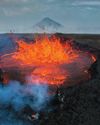
THE BRIGHT SIDE OF VOLCANIC ROCK
As a mineral resource, volcanic rock is decidedly short on glamour.
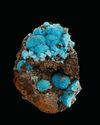
The Other Copper Minerals
12 Lesser-known Collectible Species

MINERAL COLLECTING -AND ROCK & GEM
Evolving Together FOR 54 YEARS

Gemstone Trends
A Look Back at 2024 & What to Expect in 2025

How to Make a GEM BEAD NECKLACE
No Lapidary Experience Needed!
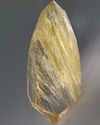
Framing Nature's Art
Faceting Rutilated Quartz for Beginners
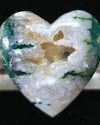
BEDAZZLED BLUE SEAM AGATE
More than several centuries ago, mining was the profession most often seen as befitting of men.
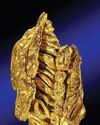
ROCK & GEM FIELD GUIDE:
Spinel is a captivating gemstone with a rich history of being mistaken for gems like ruby and sapphire.

SNAKE SCALE DROP 1.5:1
This Faceting Focus is revisiting the briolette gemstone design because of its popularity with independent and hobby gemstone faceters.

STONE CHIC
How Earth-Inspired Decor Brings Comfort to our Home